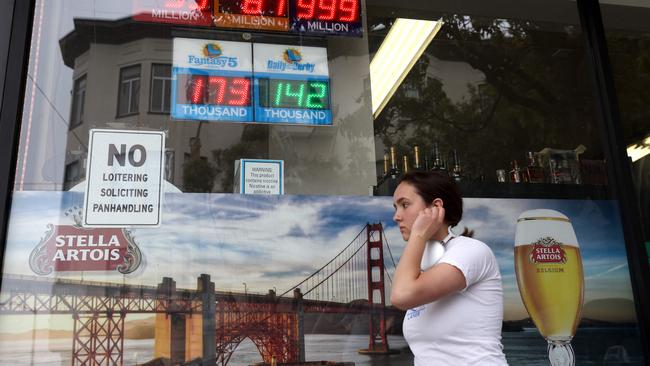
It will see the US banking problems as an opportunity to increase that desire
The staggering fall in the value of office blocks in leading American cities, including New York, San Francisco, Los Angeles, Chicago and Atlanta, plus continued low bond prices has finally forced rating agency Moody’s to place a number of big US banks on negative review and downgrade a host of others.
London, Stockholm and Hong Kong are also being hit by the working-from-home syndrome which, like the US, has reduced the office space required, and the valuation damage is compounded by higher interest rates.
In the US, values in impacted cities have fallen between 20 and 40 per cent and, while most other countries have not been as badly hit, this a trillion-dollar global catastrophe which is only now being fully appreciated by the rating agencies.
American banks, which have large bond portfolios, are also being battered by the losses created by the continued trading of 10-year bonds at yields of more than 4 per cent.
For Australia, the blow to the US banking system ranks behind China’s slowdown.
Last month, Chinese exports and imports fell more sharply than expected, which will put pressure on the iron ore price.
In reaction, the Australian dollar fell below US65c before recovering ground. But the region is under pressure because Chinese imports from Japan, South Korea, Taiwan and other South-East Asian nations fell by double-digits in July.
The region hopes the Chinese stimulation will restore economic activity, but to date the intensification of the property problems and US clamps have offset stimulus.
The China downturn plus the events in the US and Europe are, in part, delayed repercussions from strategies adopted during the Covid-19 crisis.

In Australia, our office property market has fallen, forcing superannuation funds and institutions to lower their values, but there may be more to come.
The American impact is more severe because of the way the Americans fund office blocks and other large property investments.
US office block ownership contracts usually have exit clauses, whereby owners of office blocks are simply able to walk away from their equity investment.
The bankers had seen office blocks as a relatively secure asset and so loaned 70, 80 or even 90 per cent of peak values.
They never envisaged a situation where the value of the property could fall by up to 40 per cent.
Owners with negative equity are able to walk away and leave the beleaguered banks to try and sort out the mess.
In Australia, most property loan contracts still leave the owner able to be sued for any losses after the disposal of the asset.
When the US banks entered into these disastrous contracts, most in the property industry believed that once the Covid-19 scare had subsided, office workers would return to their former work patterns.

But in the US — as in many large Australian enterprises and government departments — office people are refusing long commutes five days a week and are demanding to work at least part of the week at home or in an office space close to their home.
In San Francisco, the working from home syndrome has been multiplied by the retrenchments in the hi-tech sector and among groups like Salesforce.
The decline in the use of office buildings has affected the value of nearby retail complexes, which have large empty spaces.
If the trend continues, there could be safety issues with large city office blocks left in unsafe areas. Some areas of San Francisco are beginning to head in this direction.
Many believe that empty office space should be converted to residential accommodation, but that usually involves a large investment in new cladding, plumbing and fittings, which is often not economic.
Of course, if the office building’s value is reduced far enough, then the economics of a residential conversion must be compared with wrecking the building and building residential accommodation.
The initial reaction of the US share market to the banking ratings reduction was severe, but in later trading buyers gained more confidence, helped by better-than-expected trading results. And it’s these trading results along with persistent inflation that is causing the US Federal Reserve to consider holding rates at high levels for an extended period.
That’s not the message the US banks want to hear.







The refusal of office workers to commute five days a week to big cities is now seriously impacting the American banking system. And the US office property valuation problems coincide with deep difficulties in China’s residential property industry, which is intensifying its downtown.
The latest blow — the debt problems of China’s oldest surviving property developer Country Garden — shocked the Chinese leadership and has increased their desire to negotiate a Ukraine peace deal.